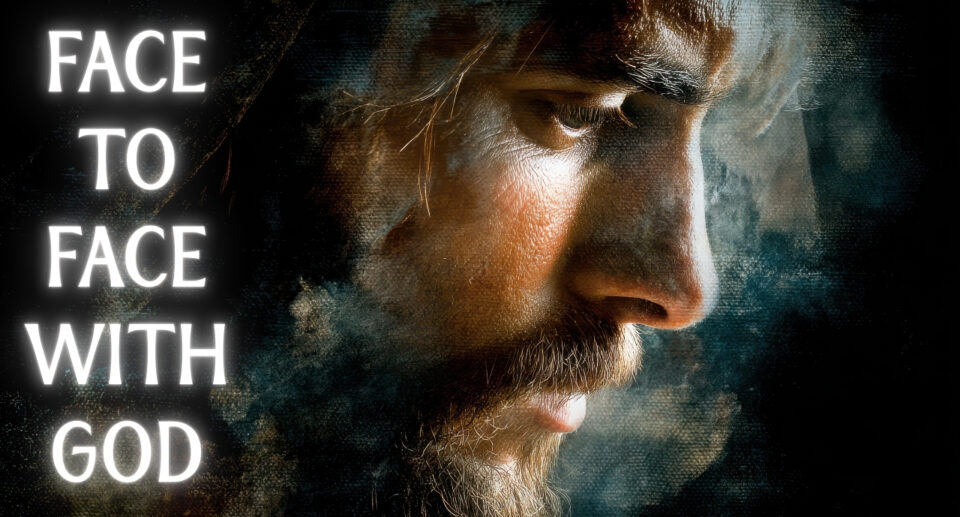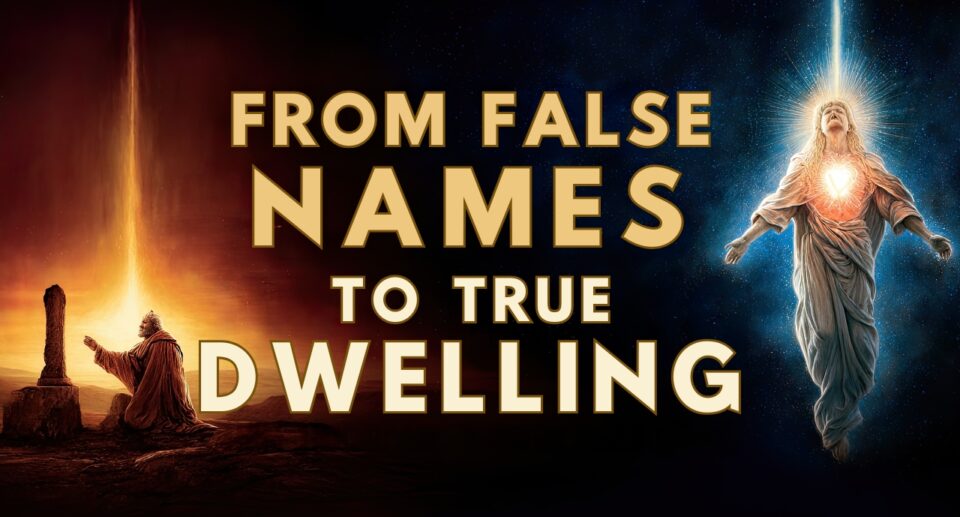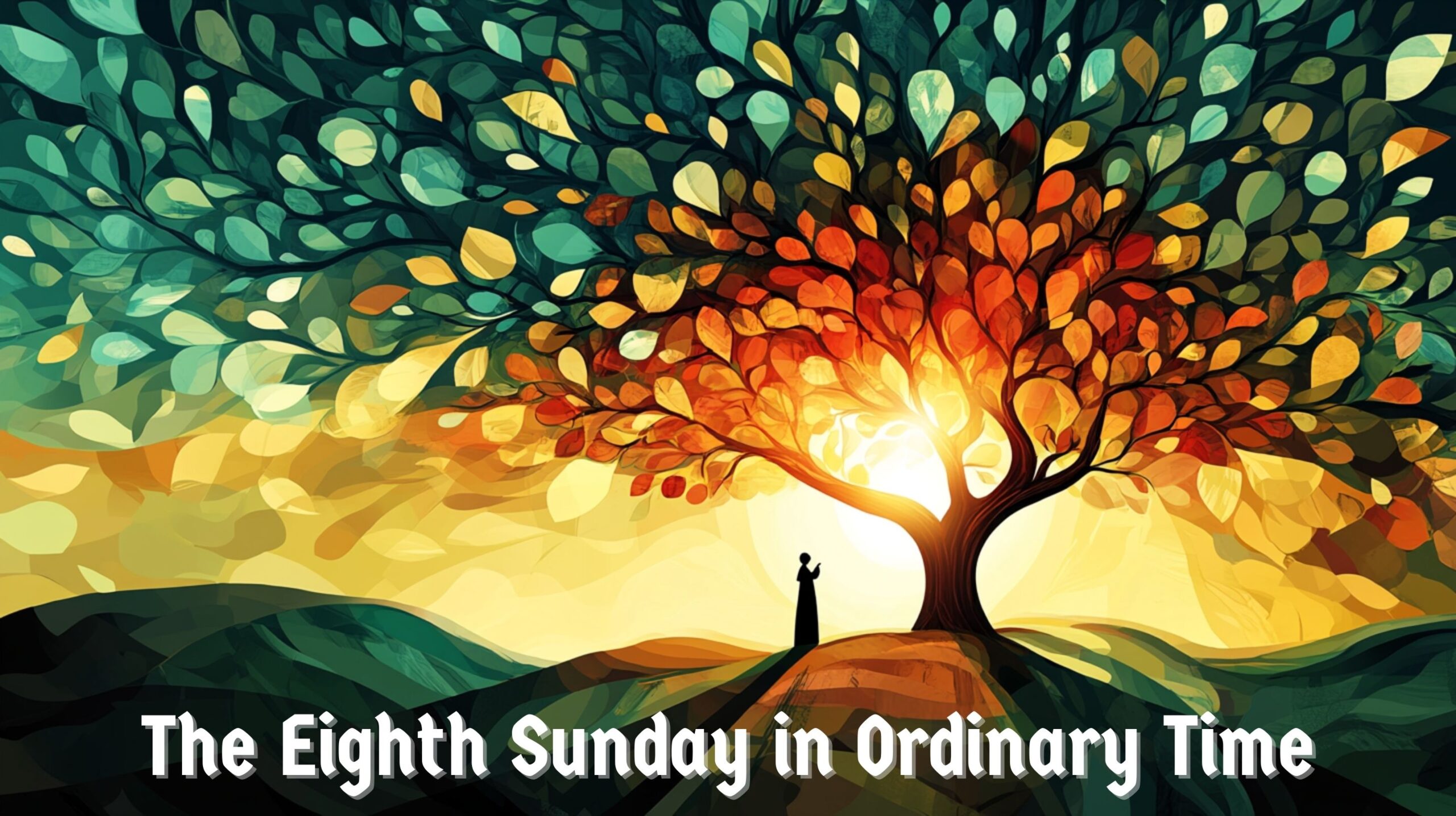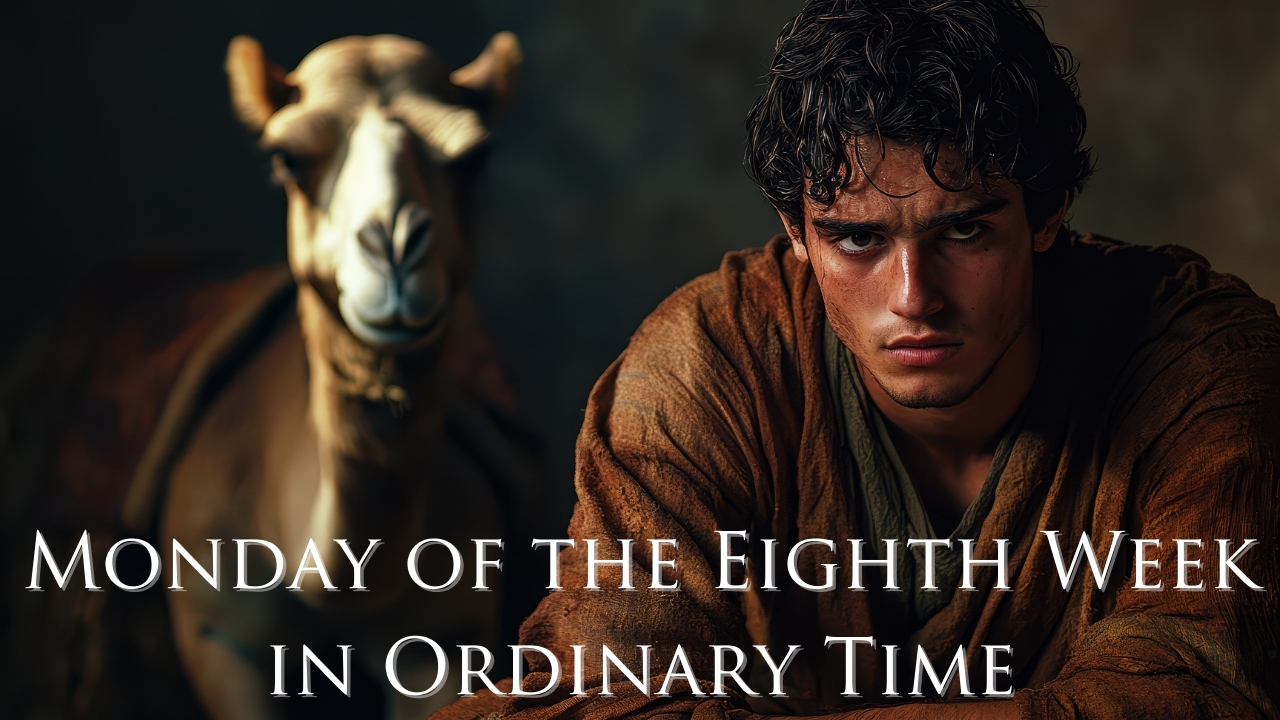Your Unmistakable Signature: When Love Becomes Revolution | Daily Readings | May 18, 2025

May 18, 2025 – Daily Catholic Lectionary Readings for the Fifth Sunday of Easter.
“By this everyone will know you are my disciples, if you have love for one another.” Beyond theology, beyond ritual, beyond morality – what is the signature that makes Christianity instantly recognizable? Experience how Jesus established love as our defining mark and how early Christians turned this love into a quiet revolution that transformed their world.
This cinematic reflection explores:
- How authentic love creates an unmistakable signature that identifies true discipleship
- Why the early church’s boundary-breaking communities shocked the ancient world
- How God’s commitment to renewal rather than replacement reshapes our approach to brokenness
- What it means to love “as I have loved you” in today’s fragmented society
Readings: Acts 14:21-27; Psalm 145:8-9, 10-11, 12-13; Revelation 21:1-5a; John 13:31-33a, 34-35
Perfect for anyone questioning what authentic faith looks like, seeking to revitalize their spiritual journey, wondering how love can be revolutionary, or longing for renewal rather than replacement.
#RevolutionaryLove #AuthenticFaith #NewCommandment #MakingAllThingsNew #ChristianSignature #FifthSundayEaster #TransformationNotReplacement
Your Unmistakable Signature: When Love Becomes Revolution
“By this everyone will know that you are my disciples, if you have love for one another.”
Across cultures, professions have their identifying marks. Doctors take the Hippocratic oath. Lawyers pass the bar. Artists develop distinctive styles. Politicians craft memorable slogans. Even criminal organizations have initiation rituals and identifying symbols.
Jesus cuts through all of this with disarming clarity. Not theological precision. Not ritual performance. Not moral perfection. Not institutional affiliation.
Love. But not just any love—love that mirrors his own.
This statement comes at one of the most pivotal moments in Jesus’ ministry. Hours before his arrest, with betrayal already set in motion, he distills everything into this singular mark of authentic discipleship.
The implications are revolutionary.
In the ancient world, religious identity was marked by separation and distinction. Groups defined themselves by who they excluded, what they didn’t eat, which days they observed, how they dressed.
Jesus establishes something radically different—a community identified by how they treat each other.
This wasn’t sentimentality. This was a complete reframing of religious identity in a world of rigid boundaries. What began in an upper room would spread through Jerusalem, Judea, Samaria, and eventually throughout the Roman Empire.
Acts 14 shows exactly what this love looked like in practice. Paul and Barnabas complete their first missionary journey, having faced both violent persecution and enthusiastic reception. They don’t simply plant churches and move on. They retrace their steps to strengthen these fledgling communities. Their message combines brutal honesty with grounded hope: “It is through many persecutions that we must enter the kingdom of God.”
No prosperity gospel here. No false promises of comfort. Just truth about the cost, coupled with practical support through appointed leadership.
Then they return to Antioch to celebrate how “God had opened a door of faith for the Gentiles.” The significance cannot be overstated. What began as a Jewish renewal movement had burst through ethnic and cultural boundaries.
This is what Christ-like love looks like—honesty without abandonment, tradition without exclusion, suffering without despair, boundaries without barriers.
The Psalmist anticipated this expansive vision: “The LORD is good to all and compassionate toward all his works.” Not some works. All works. Divine compassion extends beyond comfortable boundaries, beyond tribal identities, beyond familiar communities.
In ancient societies where gods were typically associated with particular lands, peoples, or natural forces, this universal vision was extraordinary. The God of Israel was revealing himself as the God of all creation, whose “dominion endures through all generations.”
Revelation takes this even further: “I saw a new heaven and a new earth.” This isn’t about abandoning a sinking ship. It’s about transformation so complete that death itself is undone. “God will wipe every tear from their eyes. Death will be no more; mourning and crying and pain will be no more.”
Notice what God doesn’t do. He doesn’t discard creation. He makes it new. The New Jerusalem descends from heaven to earth—heaven coming down rather than souls escaping upward. God establishes dwelling among mortals, bringing divine life into human experience rather than extracting select humans from earthly existence.
This is God’s signature move—not destroying what’s broken but making it new.
Which brings us back to Jesus’ command: “Love one another. Just as I have loved you, you also should love one another.”
What makes this “new” isn’t the call to love. The Hebrew scriptures already commanded that. What’s new is the standard: “as I have loved you.”
What does this look like?
It looks like washing feet when you’re supposed to be in charge. It looks like breaking bread with those society has rejected. It looks like speaking truth to power while touching lepers. It looks like forgiveness offered before it’s even requested. It looks like laying down your life.
Roman society was stratified by rigid hierarchies. Slaves and masters didn’t share meals. Men and women didn’t share authority. Different ethnic groups didn’t share resources. Yet early Christian communities did all of these things, creating such a stark contrast that pagan observers remarked with astonishment: “See how they love one another!”
When historians examine why Christianity spread so rapidly through the Roman Empire despite persecution, they point to several factors: care for the sick during plagues when others fled, rescue of abandoned infants, dignity given to women and slaves, support for widows and orphans. In other words, love that reflected Jesus’ own.
Two thousand years later, we’re still asking what makes a “real Christian.” Biblical knowledge? Church attendance? Political alignment? Moral behavior? Jesus cuts through it all: “By this everyone will know that you are my disciples, if you have love for one another.”
When hospitals were founded to care for those society abandoned, this was Christianity’s signature.
When monastic communities preserved learning through dark ages, this was Christianity’s signature.
When civil rights leaders faced water cannons while singing hymns, this was Christianity’s signature.
When reconciliation occurs across seemingly unbridgeable divides, this is Christianity’s signature.
Not because Christians have perfected love, but because Christians follow the one who is perfect love incarnate.
On a day-to-day level, Christ-like love is intensely practical. It means acknowledging struggles without abandoning hope, as Paul and Barnabas did. It means extending compassion beyond comfortable boundaries, as the Psalmist envisions. It means committing to renewal rather than replacement, as Revelation portrays. It means laying down power and privilege for the sake of others, as Jesus demonstrated.
The question isn’t whether we’ve achieved this perfectly, but whether we’re moving toward it consistently.
As we journey through this Easter season, perhaps it’s time to reexamine what distinguishes Christ’s followers in this world. Not buildings, programs, or theological statements—but the quality of our love.
Are communities of faith known primarily for what they stand against, or who they stand with?
Are Christians recognized more by judgment, or by mercy?
Are Christ-followers identified by exclusion, or by embrace?
In a world increasingly defined by division, authentic Christ-reflecting love stands out like stars against a dark sky. Not because it’s perfect, but because it persists. Not because it’s easy, but because it’s transformative.
“See, I am making all things new,” God declares in Revelation. This renewal begins with us, as Christ’s love reshapes hearts, relationships, communities—and ultimately, the world.
In a culture where faith is often reduced to political alignment or moral checklist, love must be our signature.
In a world desperate for authentic connection, love must be our signature.
In the face of suffering, division, and despair, love—Christ’s own love, flowing through his people—must be our unmistakable signature.






